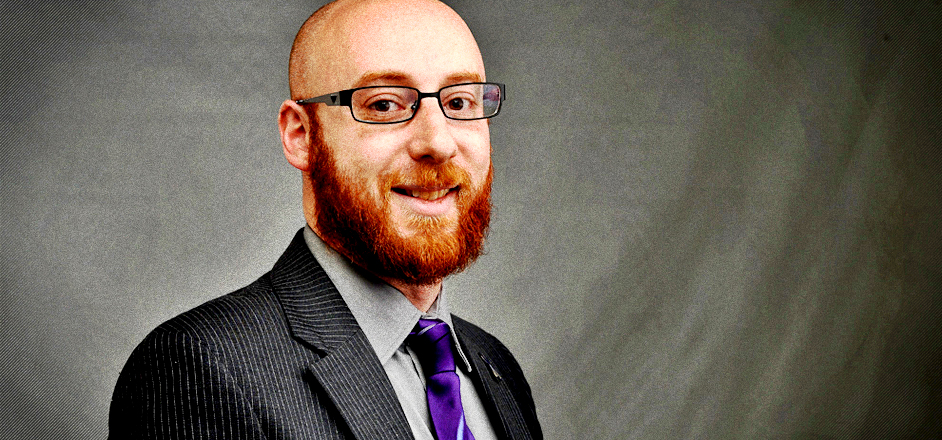Question, Rep. Singer: Ever gotten high?
"I've never smoked," he smiles, "but I've probably inhaled — I'm around it so much."
That's right, Jonathan Singer — a lanky, thoughtful Democrat in the Colorado state House of Representatives representing Longmont — hasn't ever smoked, but he hangs with the marijuana community. Lawyers and growers and regulators who are tossing money his way for his reelection campaign in November.
Why? Stoners with long memories revere this sober dude as a pot champion, a hash hero.
"If people want to remember me as sort of a cannabis warrior," says the sober Singer, "I'm ok with that."
They do.
"Singer is one of the only politicians here in Colorado that I can say without a doubt, he listens to his constituents, he seeks them out, and he always tries to do the right thing," says Matt Kahl, head of Veterans for Natural Rights — which fights, in part, for access to marijuana.
Why do pot-lovers love him? First, his current support for pro-marijuana laws: prime sponsor of bill trying to allow a pilot program for marijuana delivery.
But second, one bold stand he took six years ago.
See, while everybody, from Republicans to religious leaders to your grandma, now supports legal cannabis, it was once a lonely position. When Amendment 64 was trying to legalize pot in 2012 for the first time anywhere in the world, nearly everyone in Colorado politics opposed it: the governor, the Denver mayor, most congress members, the biggest newspaper. Either that or else they dodged the question.
But Singer was one of only two (out of 100) state legislators who backed it.
"I was part of 2 percent of state legislators who supported something that 55 percent of Coloradans ended up voting for," marvels Singer, sipping a black coffee at a bookstore on Boulder's Hill.
Two!
Why did 98 percent of state-level politicians miss what voters knew? And why'd Singer get it right?
Singer is an unlikely protagonist here. He grew up in Boulder, land of pot-blissed hippies. But Singer wasn't one. He was running cross country, watching Star Trek and trying to get into a good college. He met his wife wife volunteering at the library. He worried cannabis and booze could slow him down. "I wasn't interested," Singer says.
After college at CSU, he went to work as a social worker, where he saw lives smashed by drugs. "I almost became a prohibitionist," he says, only half-joking.
When he got into the state legislature at the age of 32, "still trying to figure out where the bathrooms were," he went out for drinks with a group of legislators who were trying to get tough on driving while under the influence of drugs. They were throwing back drinks like it was water. "I was like, didn't we just vote on a DUI bill?" Singer says.
It seemed hypocritical. So when an amendment came along titled "regulate marijuana like alcohol," Singer said okay.
Again: only two out of 100 state legislators said that same thing.
Two!

Suddenly media was calling him. "When you're the only one for them to call, they call," Singer says. It wasn't the easiest position. His parents gave him a few head shakes. Folks wondered: why is he the pot guy?
For Singer, it's simple. What makes sense? Prohibition didn't work for alcohol, and it didn't for pot. Try something new.
And, whaddyaknow? Six years later, legalization has mostly worked in Colorado.
"The streets aren't paved with gold, but neither is the sky falling," Singer says.
Today, about 60 percent of Americans are pro-legalization, and the majority of politicians are, too, including hard-core conservatives.
Sometimes, Singer wonders, where were all you politicians back in 2012, back when it was hard? Sometimes he gets irked when politicians who opposed legal weed now want a big say in how the hundreds of millions in tax money get spent.
But, more often, he welcomes the support. After all, cannabis is still illegal federally, and anti-prohibitionists need all types to change that law. And if the federal law doesn't change, America won't be a leader in world cannabis — Canada and Israel will. "The religions that succeed are those that find converts," Singer says, "not those that look for heretics."
This election cycle, Singer says he hopes to get between $5,000 and $10,000 in campaigns funds for November from pot people, in a campaign expected to cost $60,000. As pot becomes a source of power and wealth, not a source of shame and calumny, Singer's move back in 2012 looks smarter and smarter.
In 2012, as Singer was taking his bold stand for marijuana, he attended a rally for Barack Obama in Boulder. As Obama came through the crowd shaking hands, Singer asked the president: I'm giving a talk to some kids tomorrow, can I send them some words from you?
Obama leaned into Singer and told him: "Tell the kids, don't let anyone else define you."
So, now, Singer is a small but crucial character in a chapter of American history books tentatively titled "The Slow End of the War on Drugs," even though he still has no plans to smoke a joint himself.
By declining to smoke cannabis as a teen, Singer didn't let being high get in the way of his dreams. But by supporting pot legalization as a young man, Singer helped make a lot of people's dreams come true.





Leave a Reply
You must be logged in to post a comment.